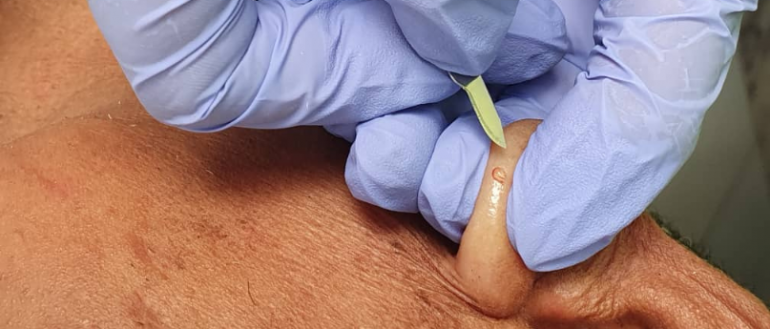Funders:
- Australian Centre for the Control and Elimination of Neglected Tropical Diseases (ACE-NTDs)
Collaborators:
- Leprosy Mission of Timor-Leste
- Ministry of Health
- National Health Laboratory
Implementation of M. leprae qPCR for close-contact screening and index case confirmation in Timor-Leste (LEPRAE-TL)
Aims:
This study will be the first to investigate the application of molecular diagnostics for M. leprae in Timor-Leste. Specific aims of the study are to:
- Determine the prevalence of M. leprae nasal carriage among close contacts of clinically diagnosed cases of leprosy in the municipality of Dili, Timor-Leste, using qPCR.
- Compare the results of traditional diagnostic testing (SSS AFB microscopy) against M. leprae qPCR in a cohort of patients undergoing laboratory investigation for clinically suspected leprosy.
Summary:
Leprosy is an infectious disease caused by the bacterium Mycobacterium leprae. Clinical manifestations of the disease are largely confined to the skin, as well as the peripheral nervous system and upper respiratory tract. Infection with M. leprae is also associated with nerve damage in the face and limbs, leading to possible disability and subsequent stigma and social exclusion.
Originally considered eliminated in Timor-Leste in 2011, there has been a resurgence of cases with rising numbers reported each year in 6 municipalities: Dili, Oecusse, Ainaro, Covalima, Manatuto and Baucau.
Diagnostic methods for leprosy include acid-fast bacilli (AFB) stain of slit-skin smear (SSS), serological testing, and molecular methods. Serological testing methods such as enzyme-linked immunosorbent assays (ELISA) and lateral flow assays are associated with low diagnostic accuracy, however molecular testing methods for detection of M. leprae have been shown to be useful in patients with paucibacillary disease and for those presenting with atypical symptoms. In Timor-Leste, the only laboratory diagnostic method currently available is AFB stain on SSS, and implementation of molecular testing methods for M. leprae may be beneficial for early diagnosis of leprosy cases.
Principal investigators:
Co-investigators:
- A/Prof Joshua Francis,
- Dr. Jennifer Yan,
- Prof. Nelson Martins,
- Dr. Paul Arkell,
- Francisco Quintão,
- Salvador Amaral,
- Antonio Salles de Sousa,
- Endang da Silva,
- Dr. Ari Tilman,
- Dr. Merita Monteiro,
- Jose Liu,
- Francisco da Costa,
- Dr. Terlinda da C. Barros.
Project manager:
- Adriano Vieira
Contact information:
Project dates:
- January 2023 to October 2023
Information for study participants:
Close contacts of index cases of leprosy, diagnosed between January 2023 and June 2023 inclusive. Index cases defined as leprosy cases notified to the Ministry of Health. Close contacts defined as any person residing in the same house or as an immediate neighbour as an index case during the three months preceding diagnosis.
The research team will visit the residence of any defined index case over the study period to determine all eligible individuals to be listed as close contacts. They will conduct an interview with the index case, and approach all designated close contacts for participation in the study.

